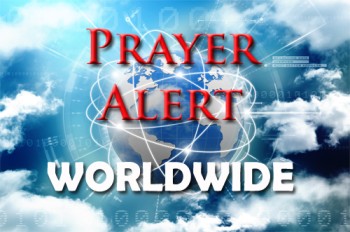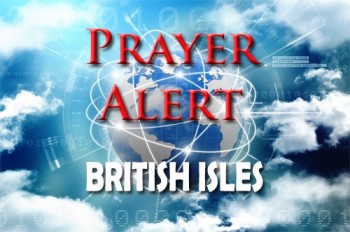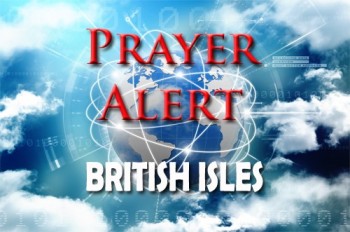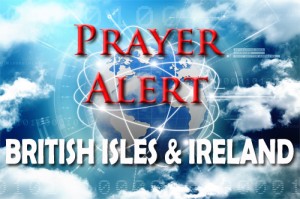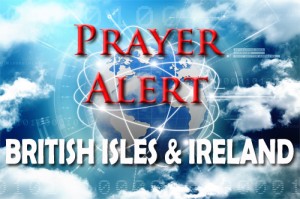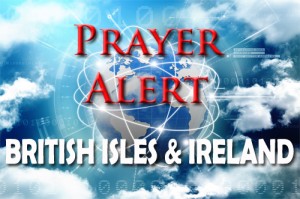Displaying items by tag: Down's Syndrome
Australia: aborting Down’s Syndrome foetuses
Western Australia health authorities approved 76 late-term abortions last year, but new legislation being introduced to parliament will allow abortions up to birth. All that will be needed is a second doctor agreeing the abortion is justified. 71 of the abortions last year were for suspected Down’s Syndrome. On the first day of parliament this year the premier said his government will ‘modernise Australian abortion laws, making safety, privacy and dignity an absolute right’. Many have now signed a petition calling on the government to show Western Australia has compassion for both pregnant mothers and unborn children, and to ensure that any purported modernisations of the law include ending the disability discrimination that has seen so many lives taken of those with Down’s Syndrome. They want the legislative council to ensure the safety, privacy and dignity of unborn children suspected of having the syndrome. See also
Woman with Down's syndrome loses abortion law appeal
Heidi Crowter, who has Down's syndrome, lost her appeal over a law allowing abortion up to birth for a foetus with Down’s. Legislation gives a 24-week time limit for abortion unless the child could suffer from physical or mental abnormalities, including Down’s. That law was made in 1967, when Down’s children could not even go to school because of their extra chromosome. Pray for judges to move with the times. Heidi said the rules discriminated against people with Down's and do not respect them. Her original court case against the Government was with Maire Lea-Wilson, mother of a Down’s son; she will now go to the Supreme Court. BPAS argued, ‘The claimants say foetuses should have human rights; this was never decided in UK law and goes against many years of legal precedent.’ 90% of women whose unborn children were diagnosed with Down's terminated their pregnancies in 2022.
Mother of Down’s son shares ‘unspeakable joy’
A mother in Singapore has shared her ‘unspeakable joy’ after rejecting her doctor’s advice to abort her son because he has Down’s syndrome. In an open letter to the Straits Times, Koh Sui Tin recalled how she was told there was a ‘very high chance of my baby having a chromosomal abnormality’. The doctor advised her to abort because of ‘all the challenges that my child would potentially have’, but Sui Tin refused and said her son Daniel - now three - is ‘thriving’. Sui Tin added, ‘Daniel is slow in learning but he is smart in his own way, and I do not see him any differently from other children, who all have unique learning paths. I shudder to think of how many babies like Daniel were aborted because of the unbalanced information on Down’s syndrome that doctors often relay to parents.’
‘We celebrated Down’s syndrome diagnosis’
When Rachael Prescott was expecting twins she was advised six times to abort them after they were diagnosed with Down’s syndrome. She was inundated with condolences and health scaremongering because they also had heart conditions. Doctors were more concerned that the children might have Down’s syndrome than with their cardiac situation. They were pressurised for genetic testing and abortion. The Prescotts refused the tests and Charlotte and Annette had Down’s syndrome, but only Charlotte had a heart defect. Rachael said, ‘We hope in the future to direct expectant parents away from false preconceptions and towards what we have found to fill us with so much joy. We celebrate our twins.’ See also world article on abortion deaths.
Parents pressured to have abortions
A survey of 1,400 women with Down’s syndrome babies found that 69% were offered a termination. Nearly half who wanted to continue with the pregnancy were asked again. 91% were offered further tests after discovering a high chance of Down's. Of those who declined further tests, 44% were pressurised regardless. One mother said that, even though they made it clear that wasn't an option for them, professionals pushed them about fifteen times to terminate. ‘At 38 weeks they said if I changed my mind on the morning of the induction to let them know, because it wasn't too late; until the baby had started travelling down the birth canal, I could still terminate.’ Millions of pounds are poured into refining the Down’s screening process, whilst £5.33 per person per year is spent on research to improve the lives of people with Down's syndrome.
Prenatal testing for Down’s Syndrome
Jane Fisher’s statements on Radio 4 sounded appealing. The new non-invasive prenatal testing (NIPT), she says, is safer and more accurate than the current test, is available in Wales, is being delayed by bureaucracy, and women in England are ‘desperate’ for it. Those against the test were not mentioned in the interview, even though the plan takes the form of an abortion. In Iceland and Denmark, which have such screening, the abortion rate of babies with Down’s is almost 100%, as technology advances and testing becomes more precise. In a society that highly values intelligence, will we one day decide there is an IQ level so low that it would be better for a child to be aborted? What about blind people in a world where visual media like TV and WhatsApp messages are taking over from radio and phone calls? People have committed suicide because of bullying over their hair colour: could parents decide that their ginger unborn baby should be aborted?
Dignity and humanity of people with Down’s syndrome
Following the proposal by the NHS for a new form of prenatal screening, Non-Invasive Prenatal Testing (NIPT), for women ‘at high risk' of having a child with Down's syndrome, Prayer Alert readers prayed for the General Synod to call for regulation on providers of this screening. See The Synod members have now affirmed that they welcome medical advances, but are also calling for the Government and health professionals to ensure that women whose unborn child has Down's syndrome are given comprehensive and unbiased information about it. They added that people with this condition should be welcomed, celebrated and treated with dignity and respect.
Synod: Down's Syndrome abortions
CofE leaders are concerned that a growing number of parents who discover their child will be born with Down’s Syndrome are choosing to terminate the pregnancy, a pattern which could see such children wiped out completely. The General Synod next week will debate a call to regulate providers of non-invasive prenatal testing, a relatively new test for the condition which carries no risk of miscarriage, unlike older procedures. The Church said that women should be provided with ‘comprehensive, unbiased information’ by doctors and test providers. In a document entitled Valuing People with Down’s Syndrome, the Church warned that the test might lead to major reductions of Down’s Syndrome live births. Iceland and Denmark have screening and almost 100% termination rates. Currently there are unregulated websites offering a blood test for a few hundred pounds, with no context or information about the prospects for someone with Down's Syndrome. See also
Iceland wants to eliminate Down’s syndrome
The only Baptist pastor in Rekjavik doesn’t want Down's syndrome eliminated. ‘My family has spent a lot of time at the hospital. For over a year our five-year-old son has been undergoing chemotherapy for leukaemia. Our youngest son, born this April, also spent two months at the hospital as doctors ran tests on him, finding a genetic mutation in his X chromosome that only two other people in the world have been diagnosed with. Every day, as I walked into the intensive care unit at the hospital, I looked over a wall of pictures of young children and teenagers holding up photos of themselves as premature babies. They were born after as little as 21 or 22 weeks of pregnancy.’ Meanwhile, there is talk of new legislation which would make abortion available in the 22nd week of pregnancy. Recently this issue took the internet by storm, with a report on how the country (population 340,000) is on the verge of eliminating Down’s syndrome.
Doctors and abortion
Doctors in the British Medical Association (BMA) will vote on decriminalisation of abortion at its annual conference (24 to 29 June). The British Pregnancy Advisory Service (BPAS) and the Royal College of Midwives (RCM) are campaigning hard for a change in the law, and senior figures in the BMA are reported to favour this. However, there is concern that pro-life arguments have not been fairly represented in the lead-up to the vote. Delegates have been given a ‘neutral’ 52-page discussion paper, written by several pro-abortion doctors, which neglects to mention the increasing survival rate of premature babies. The latest official figures show that 190,406 women had abortions in 2016: alarmingly, these included more than 1,500 girls under the age of consent. Also, more babies with Down’s syndrome were aborted than in 2015 (such abortions have increased by 46 per cent since 2010). This debate comes as research shows that many are uneasy about the current law and favour reducing the period during which abortion is legal. See
